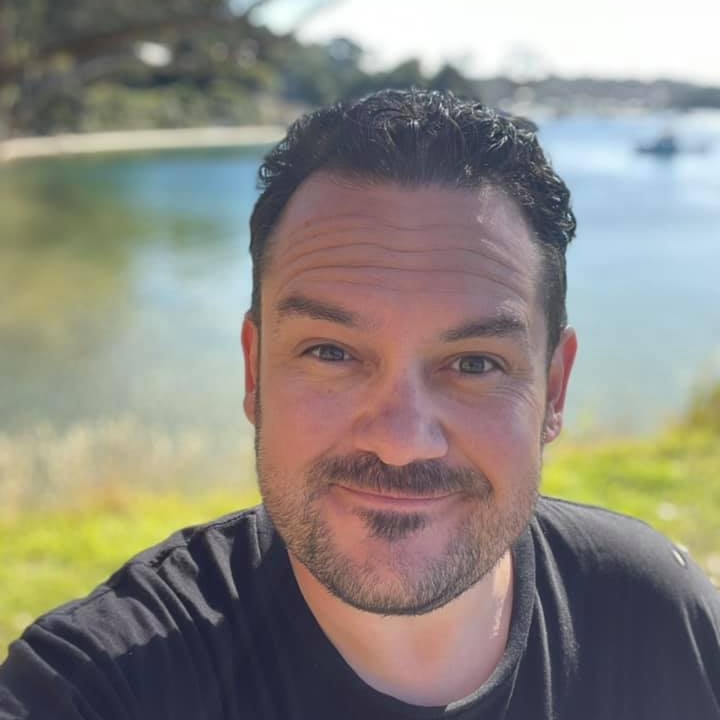

Guest post by Stephen Martin, New Zealand
When we talk about neurodiversity, most people want clean labels. You’re “dyslexic” or you’ve got “ADHD” or maybe someone says you’re “on the spectrum.”
But for so many of us, it’s not one neat label. It’s a cocktail.
For me, dyslexia was the first word that gave my challenges a name. Reading from the board at school was nearly impossible, and that’s what got picked up. But fast-forward 20 years and suddenly I’m sitting in a doctor’s office, learning I also have ADHD. And when I really reflect, I know I carry traits from autism too — a love of routine, moments of social struggle.
This is the truth for so many people: we are not “one thing.” We’re a unique mix of traits, strengths, and challenges. It’s why one-size-fits-all solutions rarely work.

Each piece of neurodiversity adds its own flavour.
Put them together and you’ve got a cocktail that changes flavour depending on the day. Some days it’s a mojito, sharp, refreshing, full of energy. Other days it’s a hangover in a glass.
What I love about the Davis Method is it doesn’t just chase symptoms. It asks: what’s the trigger?
Ron Davis understood that disorientation in the mind’s eye is at the core of dyslexia. That our brains are trying to see 3D meaning in 2D symbols, which leads to confusion. His approach is experiential, clay modelling, visualisation, life concepts. Instead of memorising, you build understanding with your hands and senses.
And here’s the powerful bit: this approach doesn’t stop with dyslexia.
The same life concepts work has helped people with ADHD, autism, dyscalculia, and more. Because at the root, all of these brains struggle with abstract concepts, time, cause and effect, or holding onto focus. Davis methods give those concepts a shape and a place in the mind.
Looking back, I wish more of us were told the truth earlier. That dyslexia was never just about spelling. That ADHD wasn’t just about being distracted. That autism wasn’t only about “social skills.”
They’re all connected. They all overlap. They’re different branches of the same neurodiverse tree.
And if we’re honest, so many adults only discover this cocktail later in life. That’s when the grief hits, what could my life have been like if I’d known at 20, not 40?
But awareness also brings possibility.
The Davis Method isn’t a quick pill. It’s a way of rewiring how you see the world. For me, doing their Concepts for Life course was like having puzzle pieces finally slot into place. Suddenly time made sense. Cause and effect clicked. I wasn’t broken, my brain just needed a different way of learning.
That’s why I believe Davis programs can support across the board, dyslexia, ADHD, autism, dyscalculia, dyspraxia. Because they go to the root. They help us master the building blocks of thought in the way our brains actually work.
And when you shift the foundation, everything else in life gets lighter.
So if you see yourself in this cocktail, a bit of ADHD, some dyslexia, maybe a splash of autism, know that you’re not alone. You’re not collecting diagnoses like Pokémon. You’re simply wired differently.
And that’s exactly why methods like Davis can make such a massive difference. They don’t try to pour your cocktail into someone else’s glass. They help you understand the mix you already have and use it to build a life that finally makes sense.
If you recognize yourself in Stephen’s description – carrying ADHD, dyslexia, autism traits, or other neurodivergent characteristics – reading skills alone won’t solve everything.
The Davis Concepts for Life® program addresses the abstract concepts that all neurodivergent brains struggle with: time, cause and effect, motivation, responsibility, order, and relationships.
Stephen mentions how the Davis approach “doesn’t just chase symptoms” but asks “what’s the trigger?” The program uses clay modeling to make abstract concepts concrete, giving them shape and place in your mind through hands-on creation and real-world exploration.
You master fundamental cognitive concepts like cause and effect, time, order and disorder, motivation, and responsibility through plastilina clay modeling, then explore how these concepts work in your daily environment. You can read more about this in our blog post: A guide to understanding abstract life concepts.
People who complete the program report increased self-awareness, stronger sense of self, improved executive functioning, better stress management, and enhanced ability to form and maintain relationships.
The program helps with executive functioning skills, stress, anxiety, focus, self-regulation, and behavior management – particularly beneficial for those struggling with forming and maintaining positive relationships.
Programs run 50-70 hours, delivered one-on-one with a trained facilitator, either in-person or online. The flexible schedule spreads across several weeks, tailored to your specific needs and goals. Find out more about the Davis Concepts for Life program.
Unlike talk therapy, this uses creativity and experiential learning. You’re not memorizing concepts – you’re building them with your hands, then experiencing them in your life.
The program supports individuals with ADHD, autism, dyscalculia, and other neurodivergent profiles through hands-on methods that align with unique learning styles, no formal diagnosis is required.
As Stephen says: when you shift the foundation, everything else in life gets lighter.
Find a Licensed Davis® Facilitator in your area or learn more about the program here. If you are unsure whether the Davis® Concepts for Life program is right for you or someone you support, fill out the form below for a free Discovery Call – one of our team will speak with you about your specific needs.
Fout: Contact formulier niet gevonden.
Stephen Martin, based in New Zealand, is the creator of The Truth About Dyslexia podcast, with nearly a million downloads worldwide. Diagnosed with dyslexia as a child and ADHD as an adult, Stephen shares raw, real stories about the neurodiverse journey and what it takes to thrive.
He has worked with the Davis Method himself and is passionate about showing adults that dyslexia, ADHD, and autism are not just challenges, but part of a powerful mix of strengths.
Learn more about his dyslexia in adults podcast here or help him with his ADHD Sleep project survey if you have ADHD.
